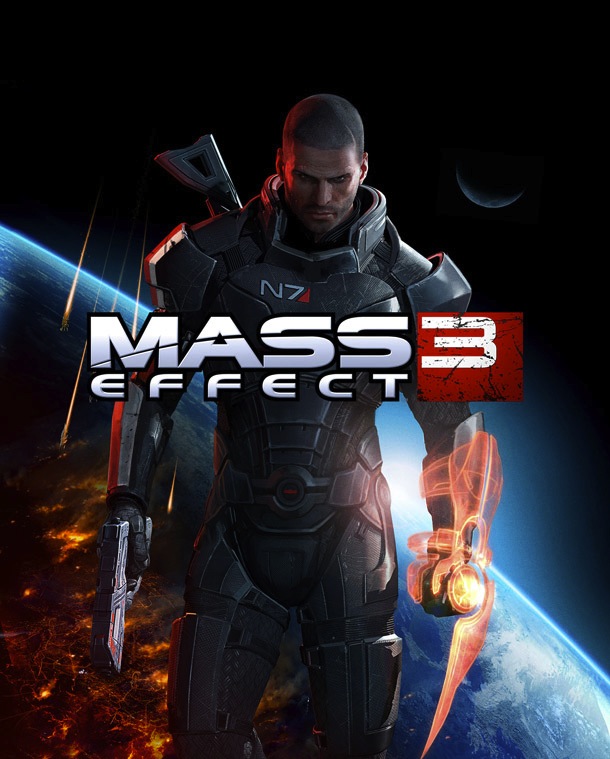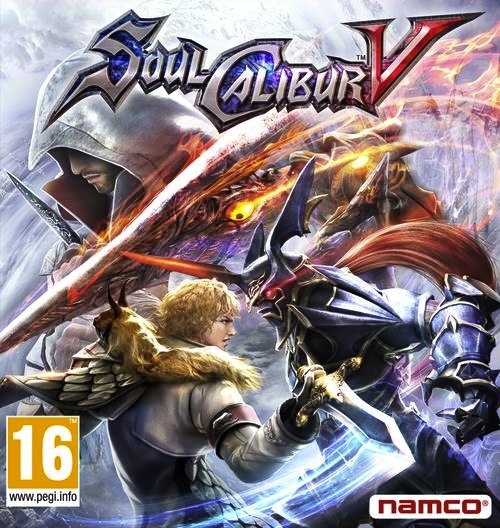
If you’ve recently ventured anywhere near gaming’s corner of the blogosphere you’ll have stumbled into a complex, heated debate on the limits of authorial control: BioWare’s conclusion to their star-faring epic Mass Effect 3 has been raising all sorts of hackles, and fans of the series proclaim its conclusion a treacherous and unfair end for the characters they’ve come to know and love. The central question has become just how much sway players really do or should hold in the realm of narrative.
The series began in 2007 with the first Mass Effect, in which its protagonist, Commander Shepard, unearths a deadly cycle of galactic xenocide—every 50,000 years a race of sentient machines, the Reapers, invades from beyond the outer reaches of the Milky Way and purges the galaxy of all sentient life. In the first and following titles, Shepard must convince the races of the galaxy to band together against their fast-approaching doom.
So the stakes are pretty high for Mass Effect 3—the Reapers are here, and it is (once again) up to Shepard and Friends to rally the opposition. The series has always centered on the responsibility of choice, and every in-game decision has repercussions for the final confrontation—one pissed-off diplomat might mean one less fleet for your rebellion.
Occasionally the stakes are even higher, forcing Shepard to choose life for one species at the cost of another. By the end, you’re crushed under the weight of your choices and dying to vindicate them in one final victory. There’s a lot on the line, not just for the characters but for BioWare as well—can they write an ending that relieves all that tension, ties up all the loose ends while reflecting the unique set of decisions each player has made?
The answer, apparently, is no. It really shouldn’t come as a surprise that such a gargantuan story—a franchise spanning three titles, five years, endless hours of playtime and a laundry list of moral quandaries—could ever wrap up in a way satisfying to every player’s unique playthrough. That being said, the three possible endings of Mass Effect 3 are jarringly unsatisfying and inappropriately similar for a series that hinged on player choice.
That is, at least, the popular opinion—in the days following its release, forums and comment sections everywhere began lighting up with scathing condemnations of the trilogy’s conclusion. This vitriol soon took the shape of an actual petition to alter the ending, the “Retake Mass Effect” movement.
Supporters hope to persuade BioWare to release an alternate, more complex ending, befitting the nuanced characters fans have come to love—mantras like “Tali Deserves a Better Ending” are commonplace. One questions their tactics, though, as protestors seek to make their voices heard through the preeminent gaming charity Child’s Play, donating money as a way of guilting Bioware into shifting their stance.
Having donated an excess of $80,000 at the time of this writing, the group seeks to demonstrate its dedication to the series’ integrity with a public display of (ostensible) good will, a sort of indirect exhibition of emotional investment. In the end, though, it comes across as a petty bit of blackmail.
Fan-driven, after-the-fact revisions aren’t unheard-of, by any means—in response to critics who thought it too depressing, Dickens revised the conclusion of Great Expectations; moreover, he wrote in a letter to a friend, “Upon the whole I think it is for the better.” The revision provided brighter prospects for the characters that fans had, over the course of the novel’s serialized publication, come to care for so much that the possibility of their being ultimately unhappy seemed unbearable.
So while I personally believe that BioWare folding to public outrage would be a little ludicrous, the outcry itself is fascinating testament to Mass Effect’s emotional potency. Somewhere along the line a “power to the player” game took on a singular life of its own, formed characters so convincingly alive that real people are giving real money to see them off a little happier.
Once, when I was a kid, my family went to Outback Steakhouse with my grandparents. On the drive over, I finished a sci-fi book I’d been reading.
I spent the evening dropping angry tears into my Bloomin’ Onion because the hero didn’t get the girl, didn’t save the world, didn’t do much at all, really. More than anything I wanted to read it again and find he’d done something different, but it wasn’t up to me.
Mass Effect told us it really was up to us. It’s a game about choice, so when BioWare yanked the narrative controls from our hands we couldn’t help but get a little bitter.
But maybe our anger proves it was never about us. We care about these characters because they appear so human, so real and whole—if that’s the case, while we might want the best for them, we can’t pretend to control their fate. Their autonomy is what makes fiction so great; it’s what makes you come back to play it, read it, watch it again; it’s what makes you choke back your tears at a family-friendly theme restaurant.
Just don’t try explaining that to your grandmother.
PHOTO COURTESY/WIKIPEDIA.ORG


